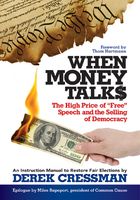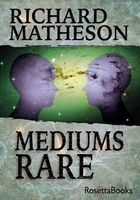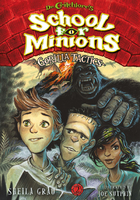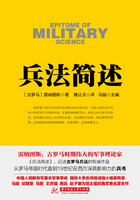The six short stories from The Leaders are a handful of survivors out of the many I wrote and tore up between 1953 and 1957, while I was still a student in Lima. I have a certain fondness for them, because they remind me of those difficult years when, even though literature mattered more to me than anything else in the world, it never entered my mind that one day I would be a writer—in the real sense of that word. I had married early and my life was smothered by jobs to earn a living as well as by classes at the university. But more than the stories I wrote on the run, what I remember from those years are the authors I discovered, the beloved books I read with the voracity that characterizes one's addiction to literature at the age of eighteen. How did I manage to read them with all the work I had? By doing only half of it or doing it very poorly. I read on buses and in classrooms, in offices and on the street, in the midst of noise and people, standing still or walking, just so long as there was a little light. My ability to concentrate was such that nothing or no one could distract me from a book. (I've lost that ability.) I remember some feats: The Brothers Karamazov read in one Sunday; that white night with the French version of Henry Miller's Tropics, which a friend had lent me for a few hours; my astonishment at the first novels by Faulkner that fell into my hands: The Wild Palms, As I Lay Dying, Light in August, which I read and reread with paper and pencil as if they were textbooks.
Those readings saturate my first book. It's easy for me to recognize them in it now, but that wasn't the case when I wrote the stories. The earliest of them, "The Leaders," ostensibly re-creates a strike that we, the graduating students at the San Miguel Academy in Piura, attempted and deservedly failed at. But it's an out-of-tune echo of Malraux's novel Man's Hope, which I was reading while I wrote the story.
"The Challenge" is a memorable story, but for reasons the reader cannot share. A Parisian art and travel magazine—La Revue Fran?aise—was devoting an issue to the land of the Incas and consequently organized a contest for Peruvian stories offering a first prize of nothing less than a two-week trip to Paris with reservations at the Napoleon Hotel, from whose windows the Arch of Triumph could be seen. Naturally, there was an epidemic of literary vocation throughout Peru and hundreds of stories were entered in the competition. My heart beats fast all over again when I recall my best friend entering the booth where I was writing news for a radio broadcast to tell me that "The Challenge" had won the prize and that Paris was waiting for me with a welcoming band of musicians. The trip was literally unforgettable and full of livelier episodes than the story offered me. I wasn't able to see my idol of the moment—Sartre—but I did meet Camus, whom I approached with as much audacity as impertinence at the exit of the theater where a revival of Les justes was being staged; and I inflicted on him a little eight-page magazine that three of us were bringing out in Lima. (His good Spanish surprised me.) At the Napoleon I discovered that my neighbor across the hall was another laureate who was enjoying two free weeks at the hotel—Miss France of 1957—and I was terribly embarrassed at Chez Pescadou (the hotel restaurant, which I entered on tiptoe for fear of wrinkling the carpet) when they handed me a net and indicated that I should fish in the dining room tank for the trout I had chosen from the menu in complete ignorance.
I liked Faulkner but I imitated Hemingway. These stories owe a great deal to that legendary figure, who came to Peru just at that time to fish for dolphin and hunt whales. His stay left us with a shower of adventure stories, spare dialogues, clinical descriptions and bits of information withheld from the reader. Hemingway was good reading for a Peruvian who started writing a quarter of a century ago: a lesson in stylistic abstinence and objectivity. Although it had gone out of style elsewhere, we were still practicing a literature about country girls raped by despicable landowners, a literature written in purple prose that the critics used to call "telluric." I hated it for being a cheat, since its authors seemed to believe that denouncing injustice excused them from all artistic and even grammatical concerns; nevertheless, I admit that my distrust did not prevent me from lighting a candle at that altar, because "The Younger Brother" lapses into indigenist themes, flavored, perhaps, with motives originating in another of my passions of that period: Hollywood westerns.
"The Grandfather" is out of key in this suite of adolescent and machista stories. It, too, is a leftover from my reading—two beautiful, perverse books by Paul Bowles, A Delicate Prey and The Sheltering Sky—and of a summer in Lima filled with decadent actions: we used to go to the Surca cemetery at midnight, we worshipped Poe and, hoping to achieve satanism someday, we consoled ourselves with spiritism. The spirits dictated all their messages to the medium, a relative of mine, with identical mistakes in spelling. Those were intense and sleepless nights, because while the séances left us skeptical about the beyond, they put our nerves on edge. Judging by "The Grandfather," I was wise not to persist in the genre of diabolism.
"On Sunday" is the story in this collection whose life I would spare. The institution of the barrio—a fellowship of girls and boys with their own territory, a magical space for the human game described by Huizinga—is now obsolete in Miraflores. The reason is simple: nowadays, as soon as they stop crawling, the young people of Lima have their own bicycles, motorcycles or cars that carry them great distances and bring them back to their homes. In this way, each one of them establishes a geography of friends whose routes spread across the city. But thirty years ago we had only roller skates, which hardly let us go around the block, and even those who did go by bicycle didn't get much farther since their parents forbade it. (And in those days, parents were obeyed.) So we boys and girls were condemned to our barrio, an extension of the home, a kingdom of friendship. Nor should barrio be confused with "gang" as it is known in the United States—masculine, bullyish, gangsterish. The barrio in Miraflores was innocent: a parallel family, a mixed tribe where you learned to smoke, dance, play sports and open your heart to girls. The concerns were not very elevated: they came down to enjoying yourself to the hilt every holiday and every summer. The great pleasures were surfing and playing soccer, dancing the mambo gracefully and switching couples after a while. I grant that we were rather silly, more uncultured than our older brothers and sisters—which is already saying a lot—and blind to what was going on in the immense country of hungry people that was ours. Later on we would discover all that, as well as what good fortune had been ours in having lived in Miraflores and having had a barrio! And retroactively, at a given moment, we came to feel ashamed. That was silly too: one doesn't choose one's childhood. As for me, my warmest memories are all linked to those barrio rites out of which—nostalgia blended in—I wrote "On Sunday."
The barrio is also the theme of "The Cubs." Yet this story is no youthful transgression but something I wrote as an adult in Paris in 1965. I say "wrote" and I should say "rewrote," because I made at least a dozen versions of the story, which never worked out. It had been going through my mind ever since I had read in a newspaper about a dog's emasculating a newborn child in the Andes. From then on I dreamed of a story about this strange wound that, in contrast to others, time would open rather than close. Simultaneously, I was turning over in my mind the idea for a short novel about a barrio: its character, its myths, its liturgy. When I decided to merge the two projects, the problems started. Who was going to narrate the story of the mutilated boy? The barrio. How to ensure that the collective narrator didn't drown out the various voices speaking for themselves? Bit by bit, filling up my wastebasket with torn sheets of paper, that choral voice gradually took shape, dissolving into individual voices and coming together again in one that gives expression to the entire group. I wanted "The Cubs" to be a story more sung than told and, therefore, each syllable was chosen as much for musical as for narrative reasons. I don't know why, but I felt in this case that the verisimilitude depended on the reader's having the impression of listening, not reading, that the story should get to him through his ears. These, shall we say, technical problems were what absorbed me. Imagine my surprise, then, at the variety of interpretations that P.P. Cuéllar's misadventures deserved: the parable of an impotent social class, castration of the artist in the underdeveloped world, a paraphrase of the aphasia among young people brought on by comic strip culture, a metaphor of my own ineptitude as a narrator. Why not? Any one of these may be correct. One thing I have learned from writing is that in this craft nothing is ever entirely clear: truth is a lie and the lie truth, and no one knows for whom it works. What's certain is that literature does not solve problems—instead, it creates them—and rather than happy, it makes people more apt to be unhappy. That's how it is and it's all part of my way of living and I wouldn't change it for any other.
Lima
February 1979














